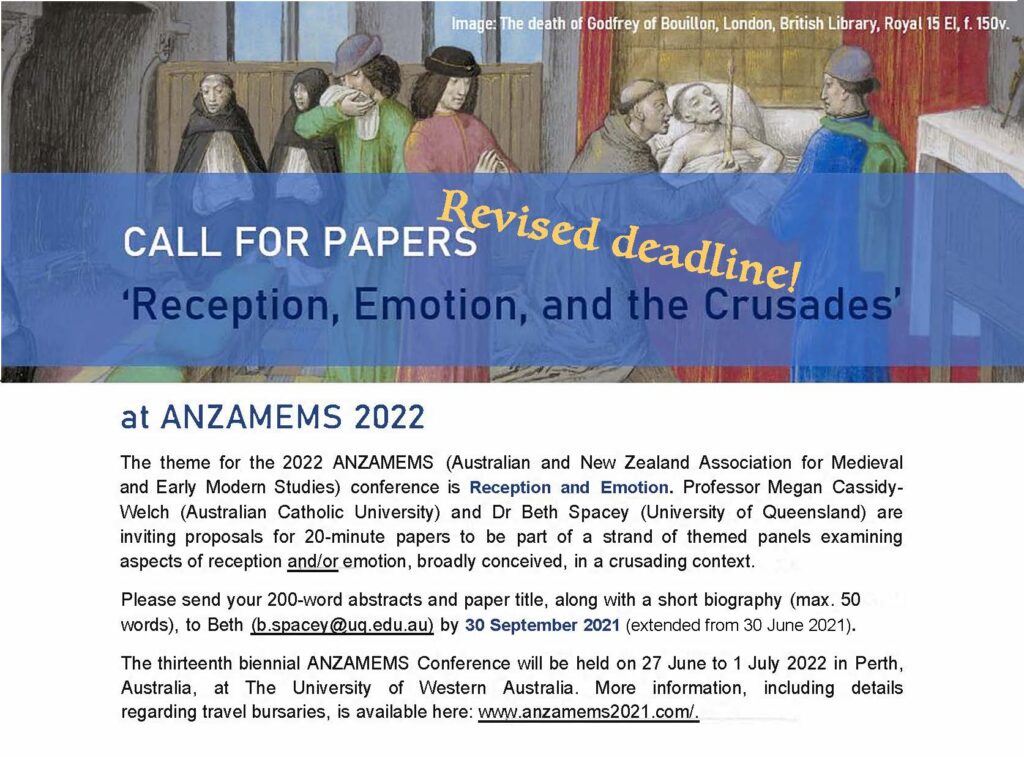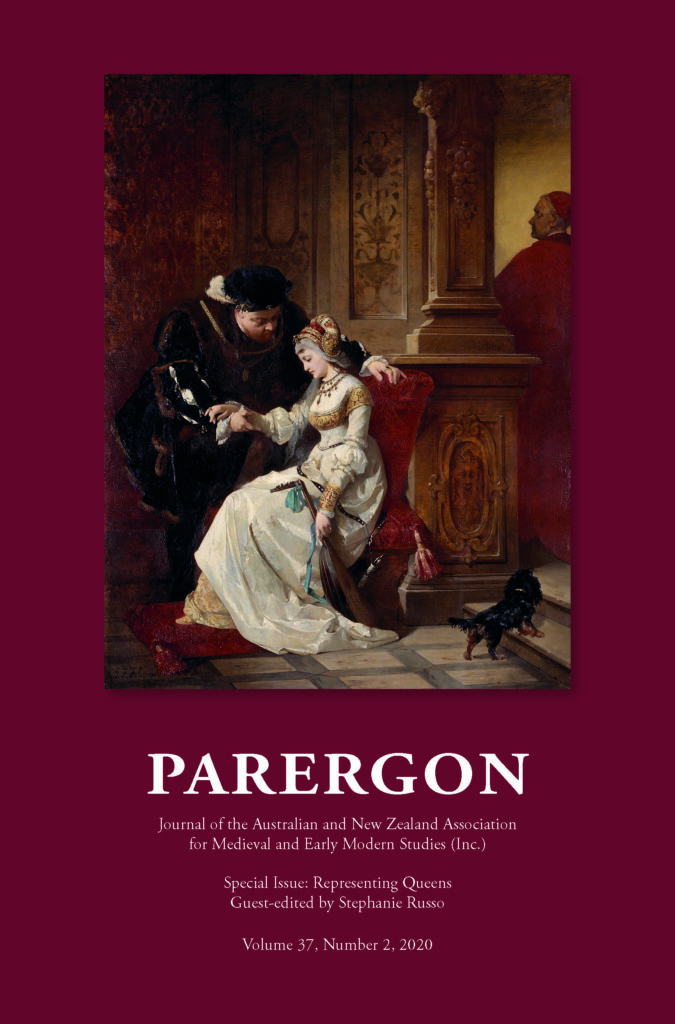Philippa Maddern ECR Publication Prize
Philippa Maddern (1952–2014) was Professor of History at The University of Western Australia, Director of the ARC Centre of Excellence for the History of Emotions, an ANZAMEMS stalwart, and an active member of the Association from its inception. Philippa contributed enormously to the development of medieval and early modern studies, both in Australia and globally. She gave great service as an office bearer of ANZAMEMS, serving in a range of capacities on the committee including many years as its Treasurer. Philippa was a great champion of researchers embarking on academic careers and ANZAMEMS is proud to establish a Publication Prize for Early Career Researchers in her honour.
The Philippa Maddern Publication Prize will be offered biennially, with the submission and adjudication process timed so that the announcement of the winner can be made at an ANZAMEMS Biennial International Conference. The Prize will be offered in 2021, with the winner announced at the ANZAMEMS conference to be held in Perth, Australia, in mid-2022 (date TBC).
In 2021 the Philippa Maddern ECR Publication Prize will be awarded to an Early Career Researcher (ECR) for the best article-length scholarly work in any discipline/topic falling within the scope of medieval and early modern studies, published within the below date range.
Articles published between 1 January 2018 to 30 November 2021 are eligible. Early online publication of articles will also be considered. The article must have been published online before the above cut-off date.
Entry for the 2021 Prize opened on 1 June 2021 and closes on 30 November 2021.
More details and full eligibility requirements are available here.
To apply for the Philippa Maddern ECR Publication Prize, please fill out the application form, which can be downloaded here.
Patricia Crawford Postgraduate Publication Prize
Patricia Crawford (1941–2009) was Professor Emerita of History at The University of Western Australia. A pioneering feminist historian, she is remembered as a leading scholar of early modern England whose work brought new depth to the study of women’s lives and thereby transformed understanding of the period. Trish was internationally recognised and served The University of Western Australia, her discipline, and ANZAMEMS with distinction. An active member of ANZAMEMS and the Parergon Editorial Committee, Trish was a scholar passionate about collaboration, and a mentor of extraordinary generosity, and ANZAMEMS is delighted to establish a Publication Prize for postgraduate students in her honour.
The Prize will be offered biennially, with the submission and adjudication process timed so that the announcement of the winner can be made at an ANZAMEMS Biennial International Conference. The Prize will be offered in 2021, with the winner announced at the ANZAMEMS conference to be held in Perth, Australia, in mid-2022 (date TBC).
The Patricia Crawford Postgraduate Publication Prize is awarded to a postgraduate student for the best article-length scholarly work in any discipline/topic falling within the scope of medieval and early modern studies, published within the within the below date range.
Articles published between 1 January 2018 to 30 November 2021 are eligible. Early online publication of articles will also be considered. The article must have been published online before the above cut-off date.
Entry for the 2021 Prize opened on 1 June 2021 and closes on 30 November 2021.
More details and full eligibility requirements are available here.
To apply for the Patricia Crawford Postgraduate Publication Prize, please fill out the application form, which can be downloaded here.
Parergon Prize
The Prize will be offered biennially, with the submission and adjudication process timed so that the announcement of the winner can be made at an ANZAMEMS Biennial International Conference.
The Prize will be offered in 2021, with the winner announced at the ANZAMEMS conference to be held in Perth, Australia, in mid-2022 (date TBC).
In 2021 the Parergon Prize will be awarded to an emerging scholar for the best article-length scholarly work accepted to be published in Parergon during the three calendar years previous to the year in which the prize is offered. Eligible articles should have been accepted to be published in the period 2018–2020.
Entry for the 2021 Prize will open on 1 June 2021 and close on 30 November 2021.
More details and full eligibility requirements are available here.
To apply for the Parergon Prize, please fill out the application form, which can be downloaded here.


